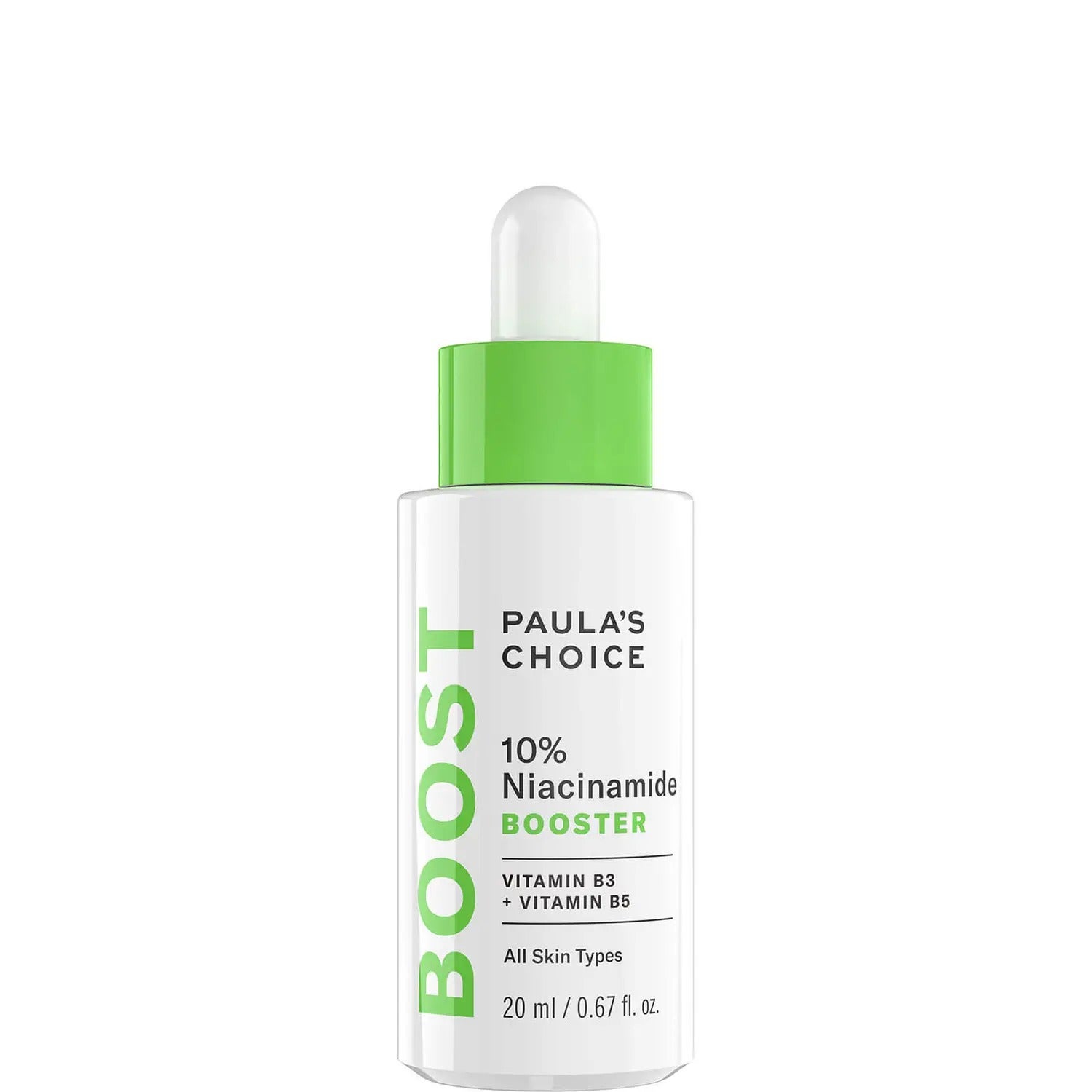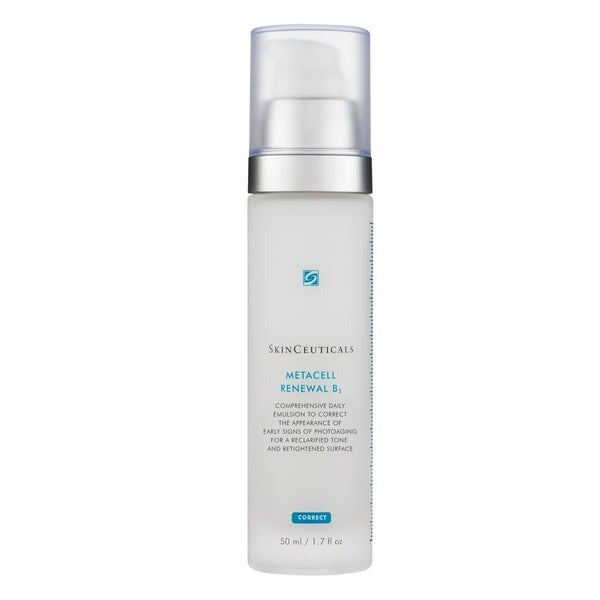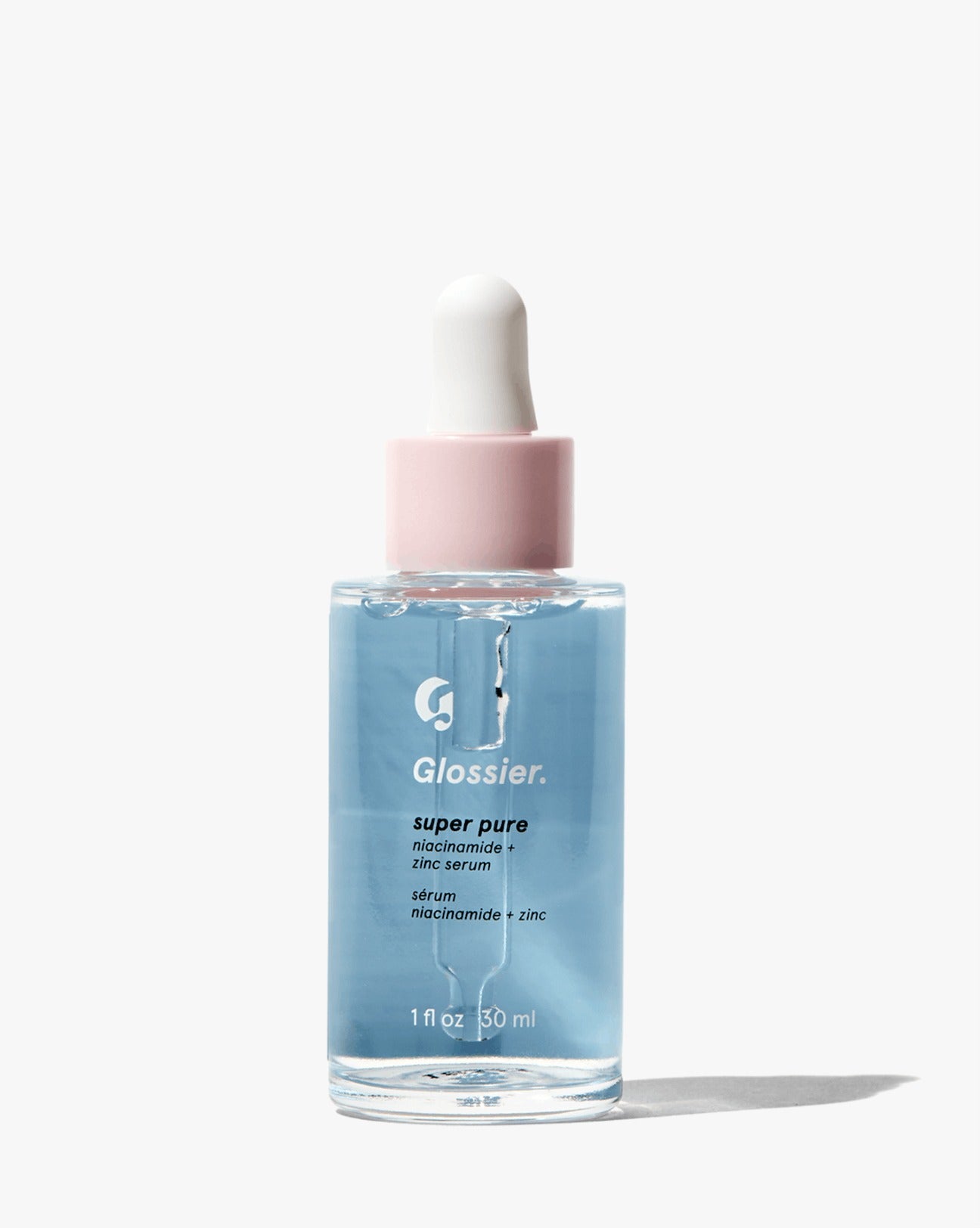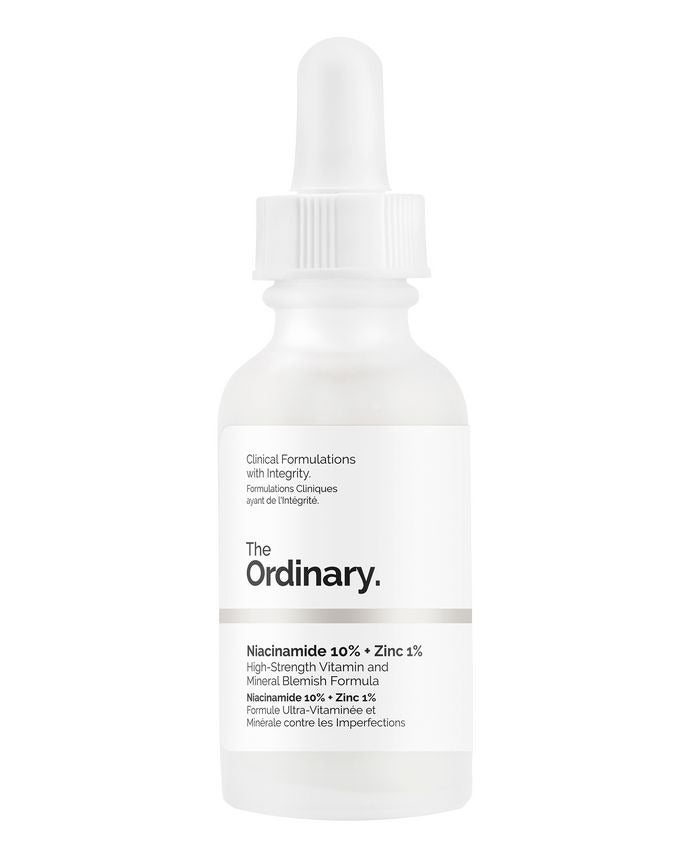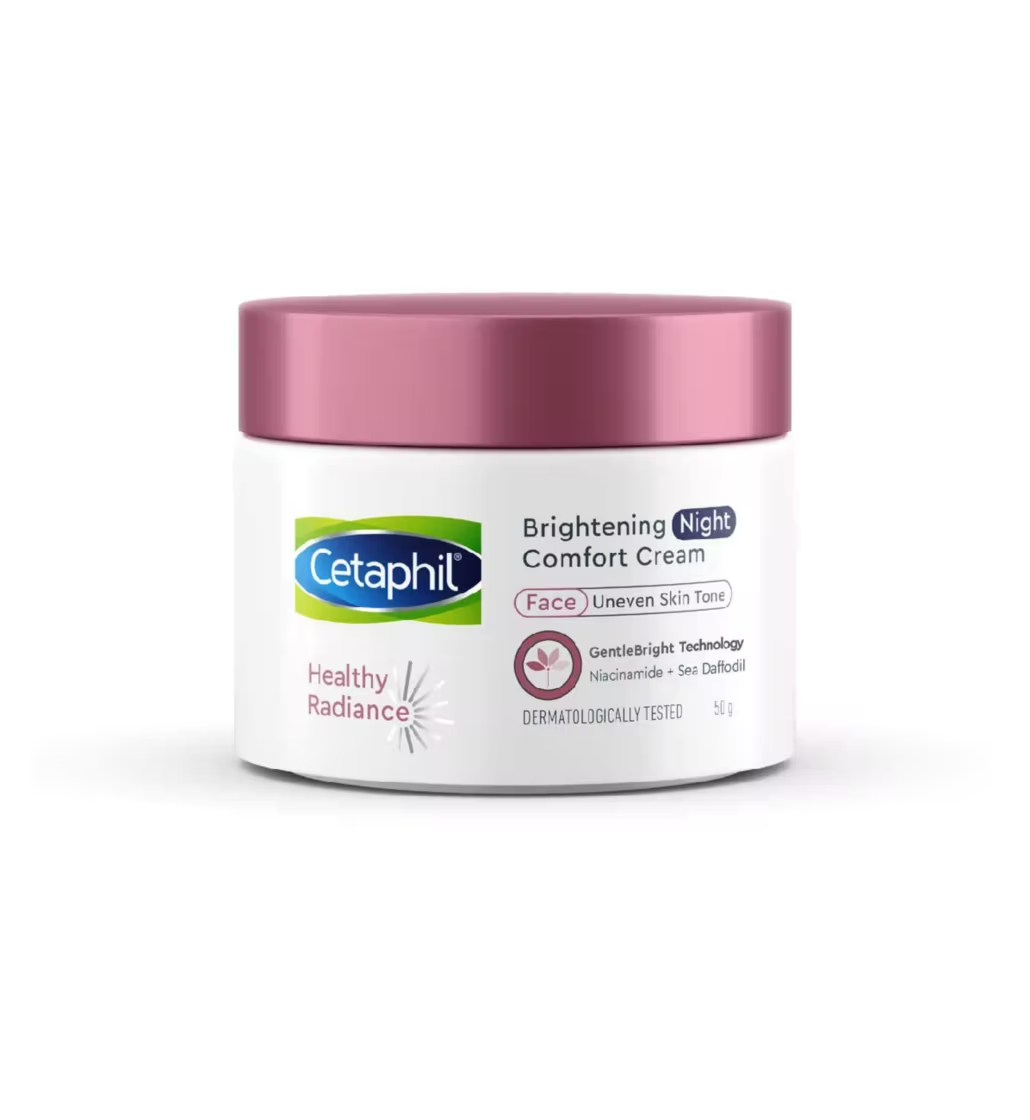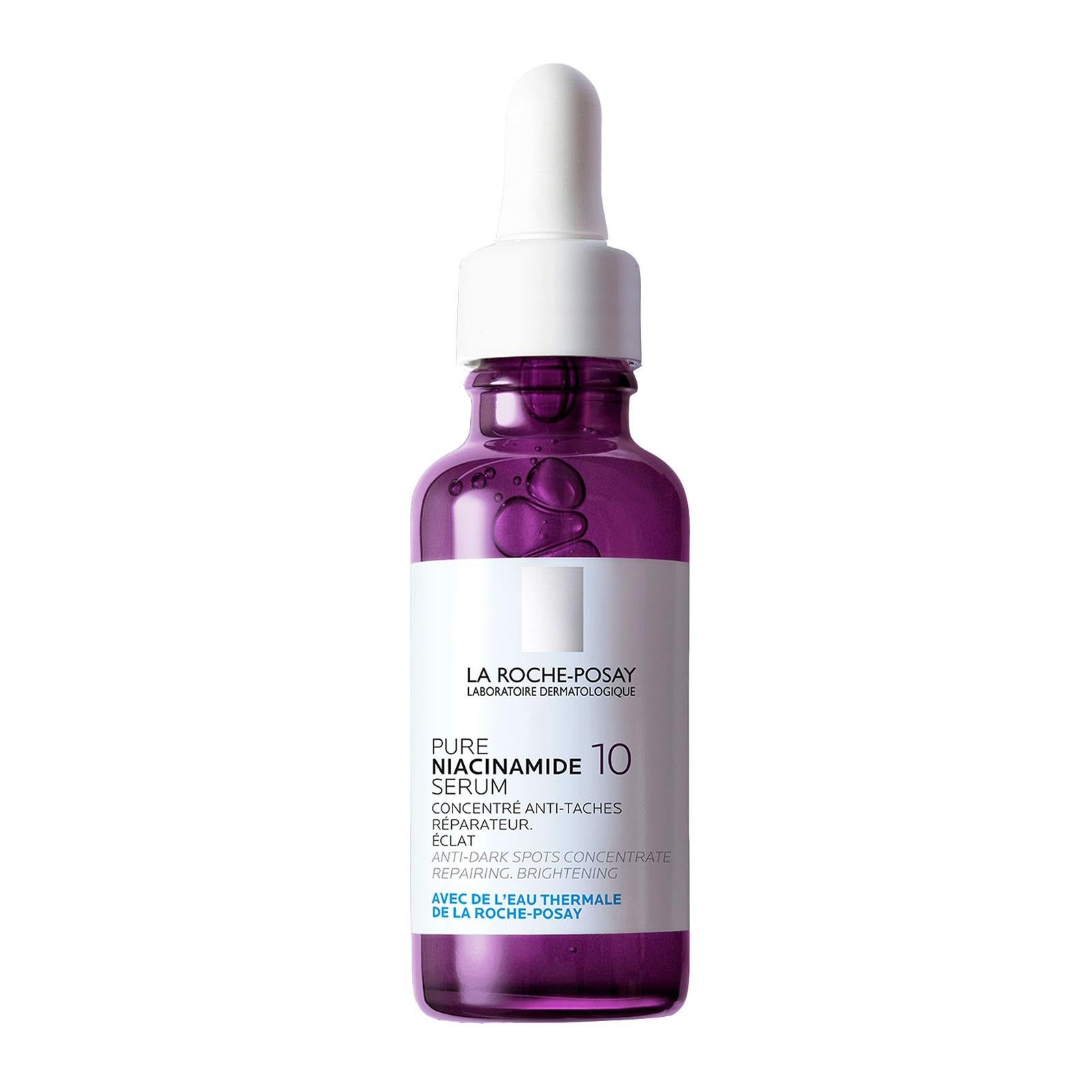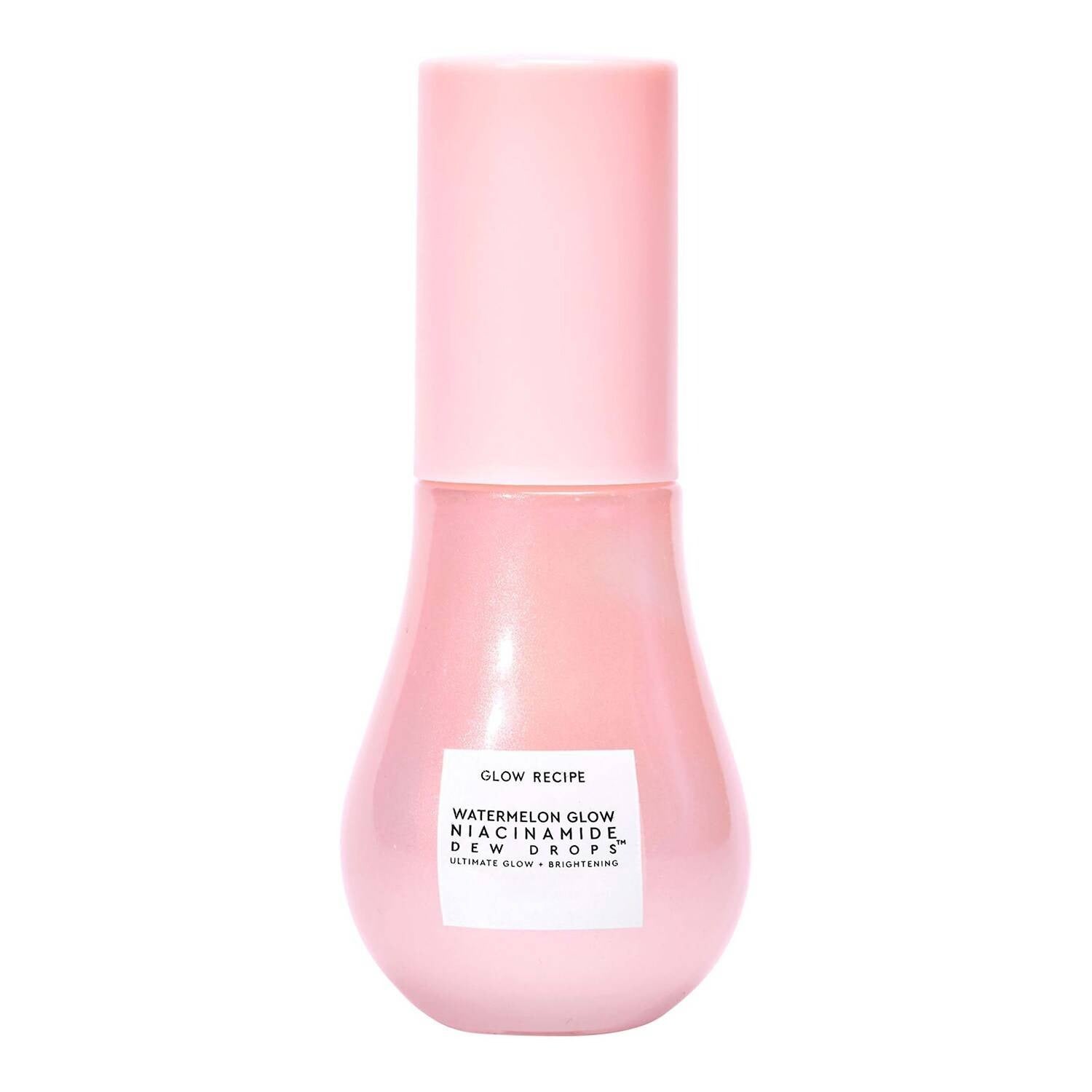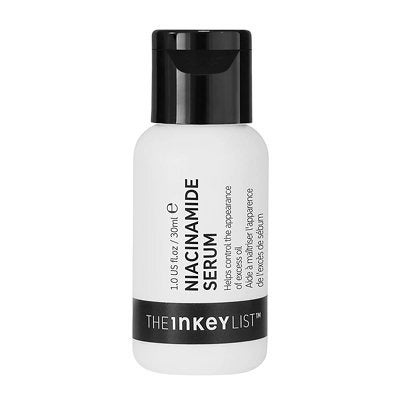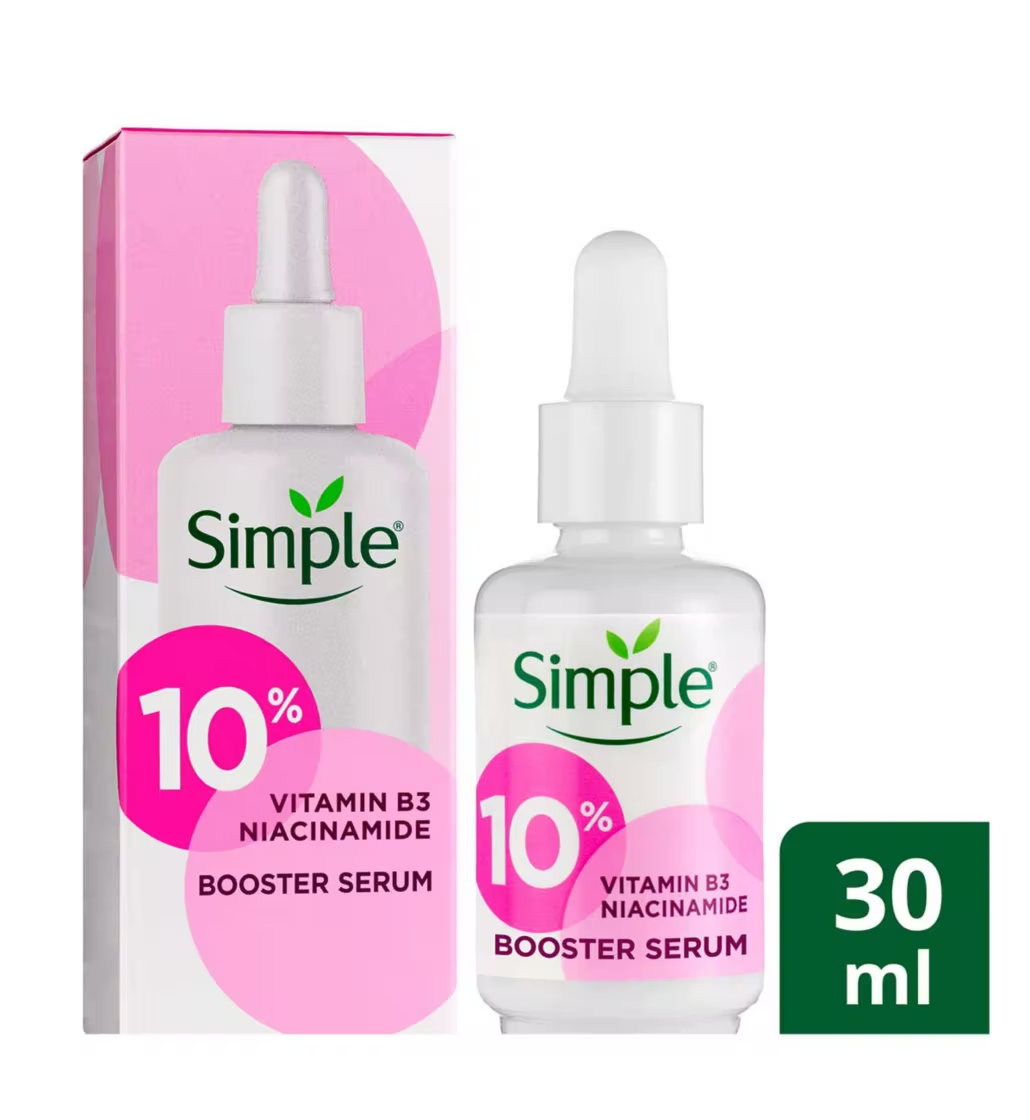Whether you're a skincare obsessive or a moisturise-and-go type of person, there are a handful of ingredients your morning and evening routine probably isn't complete without: vitamin C for protection against environmental aggressors (such as pollution), glycolic acid for exfoliation and minimising skin staining or dark spots, and retinol, mostly known for its ability to minimise fine lines, pigmentation, acne and a number of other skin complaints. But there's another ingredient skin experts praise, and although it's a little more under-the-radar than the aforementioned essentials, it's an impressive all-rounder.
AdvertisementADVERTISEMENT
Enter: niacinamide.
What is niacinamide and is it good for dry skin?
"Niacinamide is essentially vitamin B3," Dr Ewoma Ukeleghe, medical and cosmetic doctor and founder of SKNDOCTOR, told R29 – and there are heaps of benefits to incorporating it into your regular routine. "Clinical studies have shown that niacinamide can improve excess sebum production (overly oily skin), the appearance of pores, fine lines and keep the skin's barrier intact." In turn, this prevents water loss from the skin, limiting dryness and irritation, such as itching.
According to consultant dermatologist Dr Anjali Mahto, niacinamide's sebum-reducing properties may also indirectly help with mild acne, but that's not all. "Topical niacinamide has been shown to reduce redness caused by sunlight and is thought to act as an anti-inflammatory agent," she recently wrote in an Instagram post, adding environmental protection to the long list of benefits. That said, niacinamide is not a replacement for sunscreen, so you'll need to apply sun protection during the day.
How do you use niacinamide?
Professional facialist Kate Kerr advises that niacinamide, usually well tolerated by sensitive skin types, can be applied at any time in your regime including morning and evening, but it is most beneficial in leave-on formulas, such as serums or toners after cleansing. Kate recommends dermatologist favourite, SkinCeuticals Metacell Renewal B3, £120. If that's a little out of your budget, try The Ordinary Niacinamide 10% + Zinc 1%, £5. Dr Ewoma also rates Paula's Choice Resist 10% Niacinamide Booster, £47, and Glossier Super Pure Niacinamide + Zinc Serum, £29, which contains 5% niacinamide. Whether you choose to follow your serum with moisturiser is up to you.
AdvertisementADVERTISEMENT
If your skin is acne-prone, experts suggest layering fewer skincare products, so you might want to skip the serum for a moisturiser. Try the Cetaphil Healthy Radiance Day Cream SPF15, £14.95, with niacinamide, or the Cetaphil Healthy Radiance Night Cream, £14.87, if you're after a nighttime moisturiser.
Interestingly, Dr Ewoma highlights research which has shown that applying niacinamide prior to using retinol (usually associated with skin sensitivity including peeling and redness) may increase the skin's tolerance, so if your skin is reactive to retinol, it might be worth consulting niacinamide first. Dr Ewoma also notes that niacinamide is a great skincare ingredient to use before your period. "I personally love to use niacinamide 1-2 weeks before. It helps prevent any breakouts and to manage the increased sebum production many women tend to experience at this time during their cycle."
Lastly, Dr Mahto suggests looking at the ingredients list of your chosen product. Ideally, niacinamide should feature as the third or fifth ingredient for best results.
Refinery29's selection is purely editorial and independently chosen – we only feature items we love! As part of our business model we do work with affiliates; if you directly purchase something from a link on this article, we may earn a small amount of commission. Transparency is important to us at Refinery29, if you have any questions please reach out to us.
AdvertisementADVERTISEMENT







